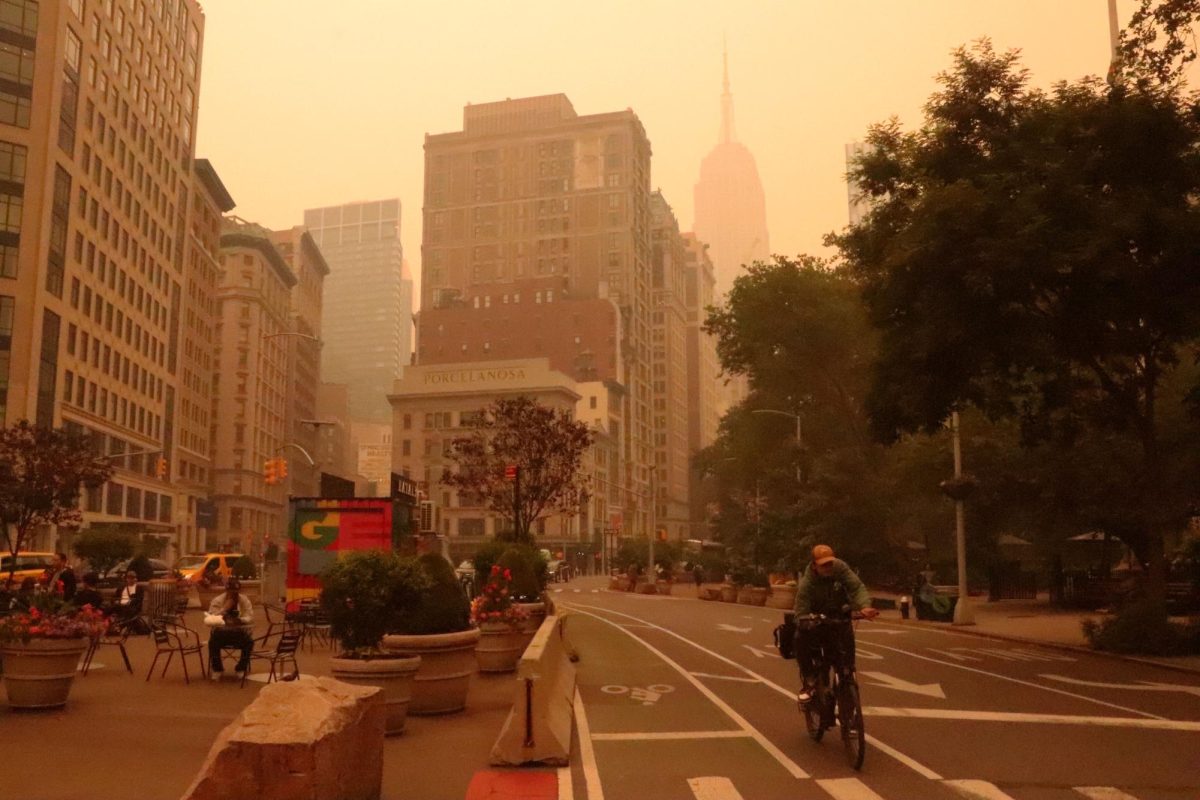A rational country expects to see American ignorance of climate change lessen over the next few decades, but for many, the denial will only be exacerbated. To find solutions for the climate crisis, it’s necessary to get the full view of how climate change is impacting humanity.
The world saw some of the direst records blown away by erratically anomalous measurements this summer. The beginning of July was recorded as the hottest week in history.
Additionally, Antarctic sea ice is melting and sea surface temperatures across swaths of the mid to northern latitudes in the Atlantic are at an all-time high.
Due to El Niño morphing the jet stream from a relatively predictable wave to an unrecognizable mess, extreme weather events are becoming more frequent as heatwaves and droughts intensify.
Many tend to cite temperature fluctuations across vast timescales in Earth’s past, but the global warming caused by humans is heating things up much quicker.
In June — the hottest June on record — high temperatures and drought-like conditions scorched the boreal forests of Nova Scotia and British Columbia, sparking hundreds of wildfires and blanketing New York City in an orange, hazardous haze.
Climate change warning signs have been masked by a special kind of ignorance: one cultivated by mercenary personalities who have mastered the art of reducing a galaxy of science to a myth knit of stars.
One tweet with nearly 4 million views says, “This is what catastrophic sea level rise actually looks like,” with a photo of the Statue of Liberty and the harbor from 1898 beside a photo from the same vantage point in 2017.
While it may seem that sea levels are the same in the two photographs, even small increases in sea level can have significant impacts. Usually measured in millimeters a year, it is a global phenomenon that varies from place to place.
Such oversimplifications share features in kind with half of America’s burgeoning rage at the colloquial ignorance of Joe Farmer from Topeka who doesn’t believe in climate change because he isn’t sweating.
It is necessary to take these early signs of climate change seriously, since prevention is the best solution. Only as society acknowledges and learns of the severity of the issue can action take place to make the planet sustainable.
Moreover, a consensus on the psychology of climate deniers has amounted to a short iteration of narratives that can each be captured by a single statement.
We’ve gone from “climate change isn’t real” to “climate change is natural and not caused by human activity” to “climate change isn’t as bad as they say it is.”
It’s true that some have chosen to decry experts they blame for the “endless apocalyptic catastrophizing” of climate change. However, the logical flow from each narrative era to the next over time has seemed to have held up throughout the general population fairly well.
But the question on the minds of researchers, investors, filmmakers and environmentalists is whether these lines will eventually close in on the reality of the climate crisis — or whether they’ll simply mutate ad infinitum, never fully addressing the problem at hand.
Reactions to climate change are splintering.
Back in December 2009, in an interview with Wired, sociologist Kari Marie Norgaard gave an early, succinct glimpse of what could be going on, discussing potential reasoning behind people who approach the issue in good faith.
“Climate change is disturbing,” she said. “It’s something we don’t want to think about.”
Norgaard continued, “It’s a paradox. Awareness has increased. There’s been a lot more information available. This is much more in our face.”
A study on climate anxiety involving participants who acknowledged climate change, was published in the Journal of Environmental Psychology in June 2020 and cited Norgaard’s thoughts.
“[Norgaard] described this threat as a potential loss of ontological security: a lack of confidence that the natural world is as it appears to be; a deep and troubling sense that something has gone wrong with the natural world and our relationship to it,” the study said.
Not to say that an easy solution to penetrating the shroud is in sight, but an examination of these psychological defense mechanisms is a decent start. Analyzing the influence of pundits on the soapbox of climate denial is also in the equation.
Rather than disregarding those whose existential security has necessitated ignorance, we should open our minds to digest and fully understand the implications human actions have on the environment.







